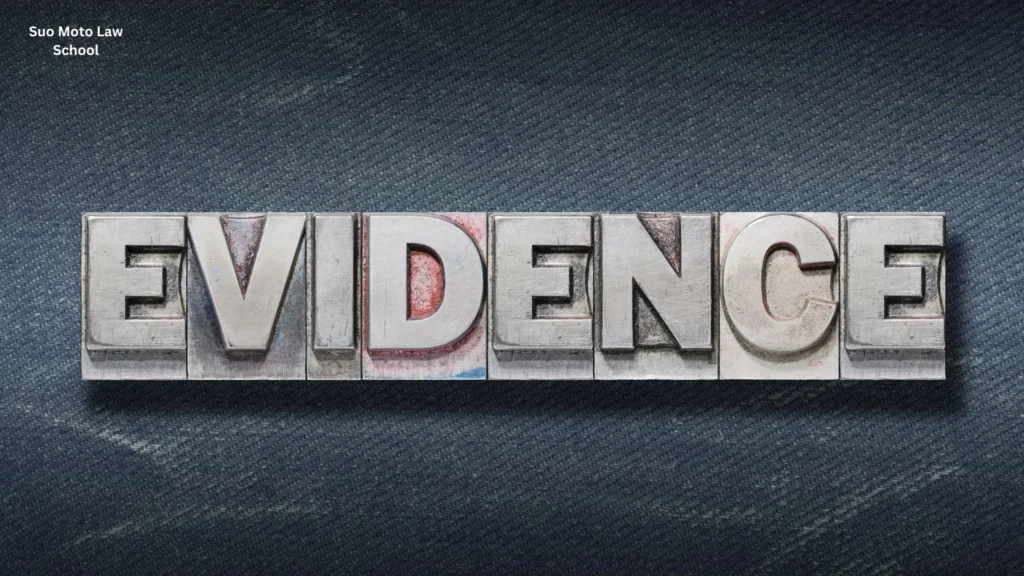This article will discuss the scope and necessity of the Evidence Act 1872. To get prior knowledge about evidence law, this will help you.
Scope of the Evidence Act
Section 1 of the Evidence Act specifies that the provisions of this Act shall apply to all judicial proceedings before any court, including courts-martial, other than courts-martial convened under the Army Act, the Air Force Act, and the Naval Discipline Act or the Navy Act, 1961, but not affidavits presented to any court or officer nor to proceedings to any arbitrator. Thus, the Evidence Act does not apply to the following:
- Courts-martial convened under the Army Act, Naval Discipline Act, or the Navy Act, 1961
- Affidavits presented to any court
- Proceedings to any arbitrator
The Necessity of the Law of Evidence
The substantive law, whether the statute or common law, merely defines what facts constitute a right or liability. Before a tribunal can pronounce the existence of a right, liability, or crime, it must ascertain the facts that, according to the rules of substantive law, establish the existence of that right, liability, or crime. This duty of ascertaining the facts, which are the essential elements of a right or liability, is the primary and perhaps the most difficult function of a court. The inquiry into these facts is regulated by a set of rules and principles that go by the name of the “Law of Evidence.”
A sound knowledge of the law of evidence is as essential to a successful lawyer as the knowledge of structural engineering is to the architect or the science of navigation is to the captain of a ship. An empirical study of the case laws of our Supreme Court will certainly reveal the idea that a good case has failed because of a lack of adequate and necessary knowledge of evidence on the part of the lawyer contrasted with the conduct of the case. The whole law of evidence is based on two fundamental principles:
- No facts other than those in issue (matters in controversy) may be admissible, and
- All facts having probative value, i.e., those which will help the court to come to a conclusion upon the existence or non-existence of matters in controversy, are admissible in evidence.
This is because the court will not waste its time in examining any material, however interesting it may be if it has no bearing upon the matter in controversy. The law of evidence, in fact, lays down rules on these facts in issue and relevant facts.
The object of both the civil and criminal proceedings is to find out the truth about the facts in issue between the parties and then to give judgments on the basis of the truth. It is the law of evidence that helps the court arrive at this truth.
If there are no rules as to who can give evidence, which evidence will be admissible, which not, which are excluded, and which need not be proved; at what measure, and by what method a piece of evidence will be proved, then no case will ever be decided. It would take years before a simple case is decided, and justice would become a mockery.
If there are no rules of evidence and everything is left to the discretion of the judge, it is likely that the judge will be biased; there will remain uncertainty in the areas of law. Rules of evidence, therefore, provide certainty and save time for the judges resolving disputes in society.

